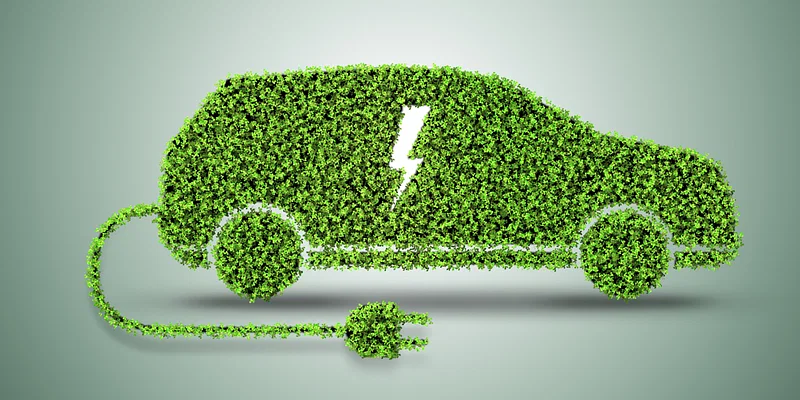The Rise of Electric Vehicles: A Comprehensive Guide to the EV Revolution
The Rise of Electric Vehicles: A Comprehensive Guide to the EV Revolution
The world is rapidly changing and the automotive industry is no exception. The rise of electric vehicles (EVs) is no longer a novelty; it’s a trend that’s here to stay. Electric vehicles are becoming increasingly popular, and as technology improves and prices drop, it’s becoming easier for consumers to make the switch. In this comprehensive guide, we’ll take a deep dive into the EV revolution and explore everything you need to know about electric vehicles.

What are Electric Vehicles?
Electric vehicles, also known as EVs, are vehicles that run on electric power. Instead of using a traditional combustion engine that runs on gasoline or diesel, electric vehicles use electric motors powered by rechargeable batteries. These batteries can be charged using a standard electrical outlet, a charging station, or a specialized charging unit.
Types of Electric Vehicles
There are three main types of electric vehicles:
- Battery Electric Vehicles (BEVs): These vehicles are 100% electric and run exclusively on electric power. They have no gasoline engine and produce zero emissions.
- Plug-in Hybrid Electric Vehicles (PHEVs): These vehicles have both an electric motor and a traditional combustion engine. They can be powered by either electricity or gasoline, and can switch between the two power sources depending on the driving conditions.
- Hybrid Electric Vehicles (HEVs): These vehicles have both an electric motor and a traditional combustion engine. However, the electric motor is only used to assist the gasoline engine and cannot be used as the sole power source.
Benefits of Electric Vehicles
Electric vehicles offer a range of benefits over traditional gasoline-powered vehicles, including:
- Lower Operating Costs: Electric vehicles are cheaper to operate than gasoline-powered vehicles because they require less maintenance and have lower fuel costs.
- Environmental Benefits: Electric vehicles produce zero emissions, which is better for the environment and helps to reduce air pollution.
- Improved Performance: Electric vehicles have instant torque and acceleration, which provides a smoother and faster driving experience.
- Reduced Noise Pollution: Electric vehicles produce less noise than gasoline-powered vehicles, which can help to reduce noise pollution in urban areas.
- Energy Independence: Electric vehicles rely on electricity, which can be generated from a variety of sources, including renewable energy sources like wind and solar power. This reduces our reliance on fossil fuels and promotes energy independence.
Challenges Facing Electric Vehicles
Despite the many benefits of electric vehicles, there are still some challenges that must be addressed in order for electric vehicles to become more mainstream. These challenges include:
- Limited Driving Range: The range of electric vehicles is still limited compared to gasoline-powered vehicles, which can make long-distance travel more difficult.
- Charging Infrastructure: The availability of charging stations can vary depending on the region, which can make charging an electric vehicle more difficult when traveling long distances.
- Cost: Electric vehicles are still more expensive than traditional gasoline-powered vehicles, although the price is gradually decreasing as technology improves and production scales up.
- Battery Recycling: The recycling of lithium-ion batteries used in electric vehicles is still in its early stages, and there are concerns about the environmental impact of disposing of these batteries.
The Future of Electric Vehicles
Despite the challenges facing electric vehicles, the future looks bright for the EV revolution. As technology continues to improve, driving range will increase and charging times will decrease. The cost of electric vehicles will continue to drop as production scales up, and as more people make the switch to electric vehicles, the demand for charging infrastructure will increase.
Governments and businesses around the world are also investing heavily in the electric vehicle industry. Many countries have announced plans to ban the sale of new gasoline and diesel-powered vehicles in the coming years, which will accelerate the transition to electric vehicles.
In conclusion, electric vehicles are becoming increasingly popular, and as technology improves and prices drop, it’s becoming easier for consumers to make the switch. The benefits of electric vehicles are numerous, including lower operating costs, environmental benefits, improved performance, reduced noise pollution, and energy independence. However, there are still challenges that must be addressed, such as limited driving range, charging infrastructure, cost, and battery recycling.
The future of electric vehicles is promising, and the transition to electric vehicles is inevitable. As governments and businesses invest in the electric vehicle industry, we can expect to see more innovative technologies and solutions that will address these challenges and make electric vehicles more accessible and convenient for consumers.
The rise of electric vehicles is not just a trend; it’s a revolution that will change the automotive industry and the world we live in. Whether you’re a car enthusiast or someone who is passionate about protecting the environment, the electric vehicle revolution is something that everyone should pay attention to. With their many benefits and the promise of a cleaner and more sustainable future, electric vehicles are here to stay, and they’re only going to get better.
What is an electric vehicle?
Answer: An electric vehicle (EV) is a vehicle that runs on electric power instead of gasoline or diesel. EVs use electric motors powered by rechargeable batteries, which can be charged using a standard electrical outlet, a charging station, or a specialized charging unit.
What are the benefits of electric vehicles?
Answer: Electric vehicles offer a range of benefits over traditional gasoline-powered vehicles, including lower operating costs, environmental benefits, improved performance, reduced noise pollution, and energy independence.
How far can electric vehicles travel on a single charge?
Answer: The range of electric vehicles varies depending on the model and the type of battery used. Typically, most electric vehicles can travel between 100 and 300 miles on a single charge.
How long does it take to charge an electric vehicle?
Answer: The charging time for an electric vehicle varies depending on the type of charger and the size of the battery. On average, it takes around 4 to 8 hours to fully charge an electric vehicle using a standard level 2 charger.
How much do electric vehicles cost?
Answer: The cost of electric vehicles varies depending on the model and features. Generally, electric vehicles are more expensive than traditional gasoline-powered vehicles, although the price is gradually decreasing as technology improves and production scales up.
What are the challenges facing electric vehicles?
Answer: Despite the many benefits of electric vehicles, there are still some challenges that must be addressed in order for electric vehicles to become more mainstream. These challenges include limited driving range, charging infrastructure, cost, and battery recycling.
What is the future of electric vehicles?
Answer: The future of electric vehicles is promising, as technology continues to improve and production scales up. Governments and businesses around the world are investing heavily in the electric vehicle industry, and many countries have announced plans to ban the sale of new gasoline and diesel-powered vehicles in the coming years.
- Benefits of electric vehicles
- Electric vehicle technology
- Future of electric vehicles
- Electric vehicle charging infrastructure
- Electric vehicle adoption rates
- Electric vehicle market growth
- Environmental benefits of electric vehicles
- Electric vehicle incentives
- Battery recycling in electric vehicles
- Electric vehicle charging station installation
The Rise of Electric Vehicles: A Comprehensive Guide to the EV Revolution



